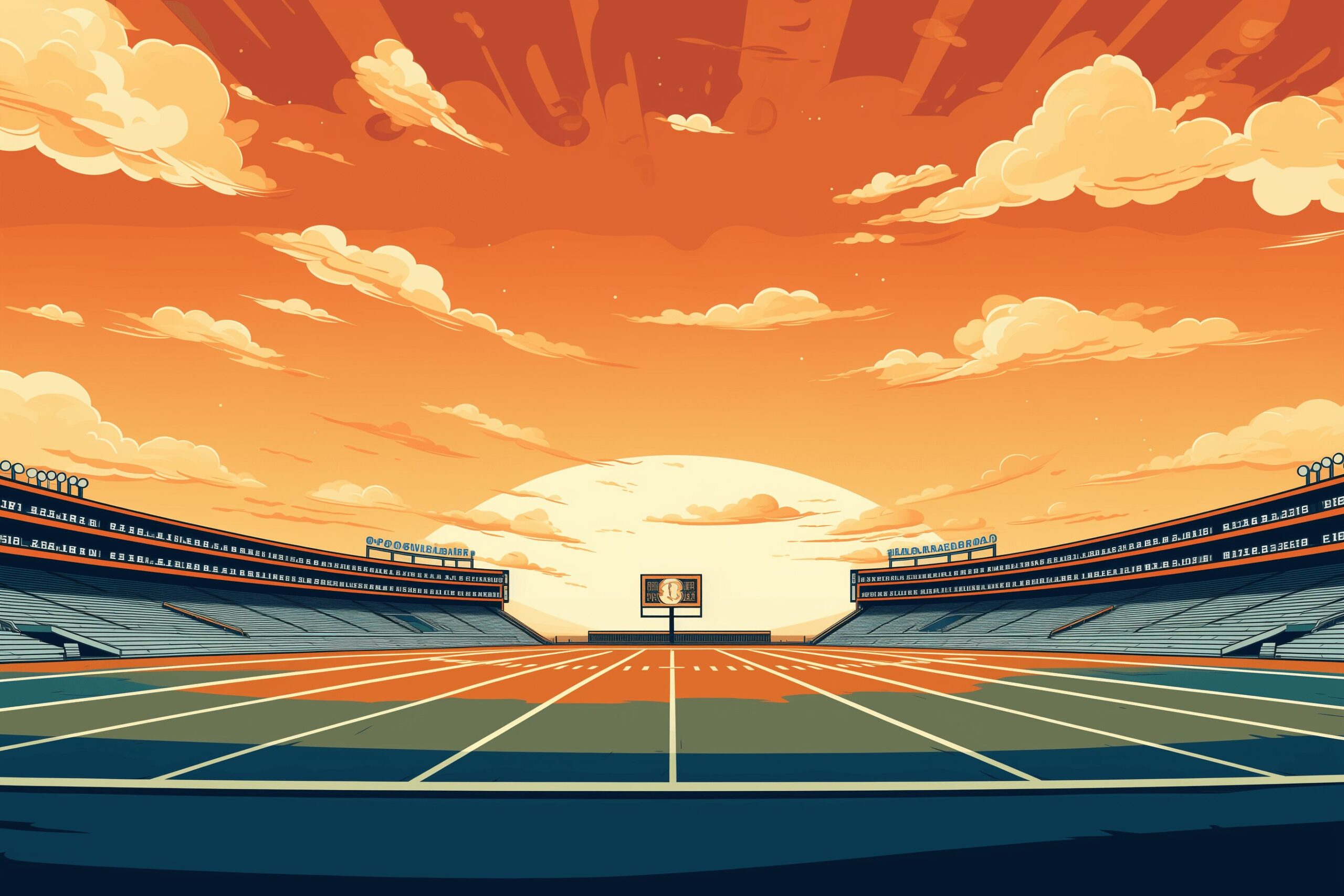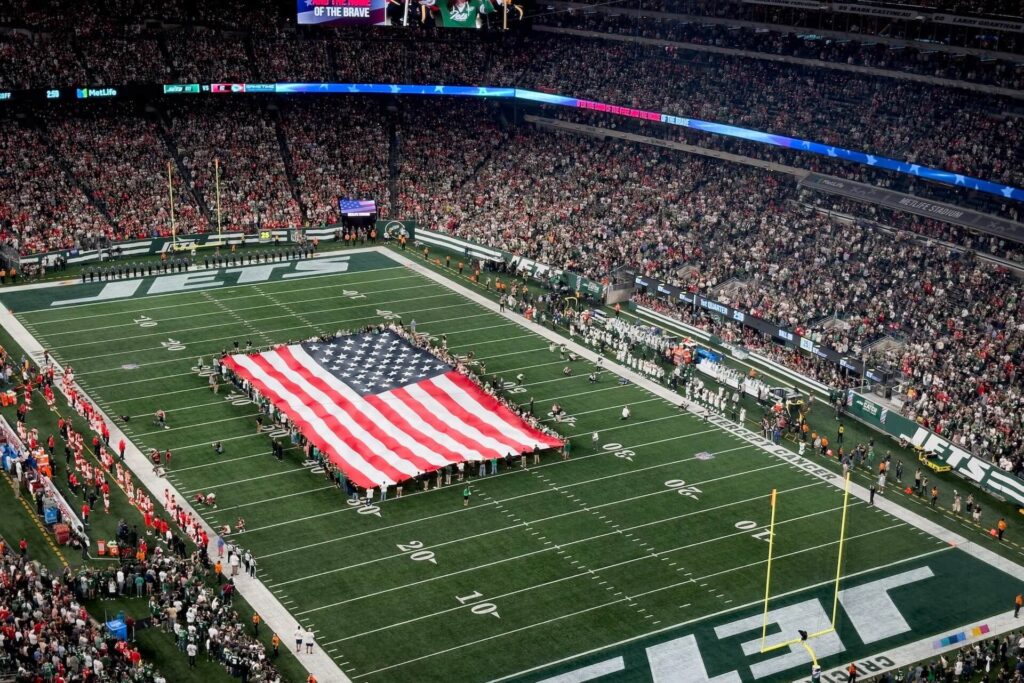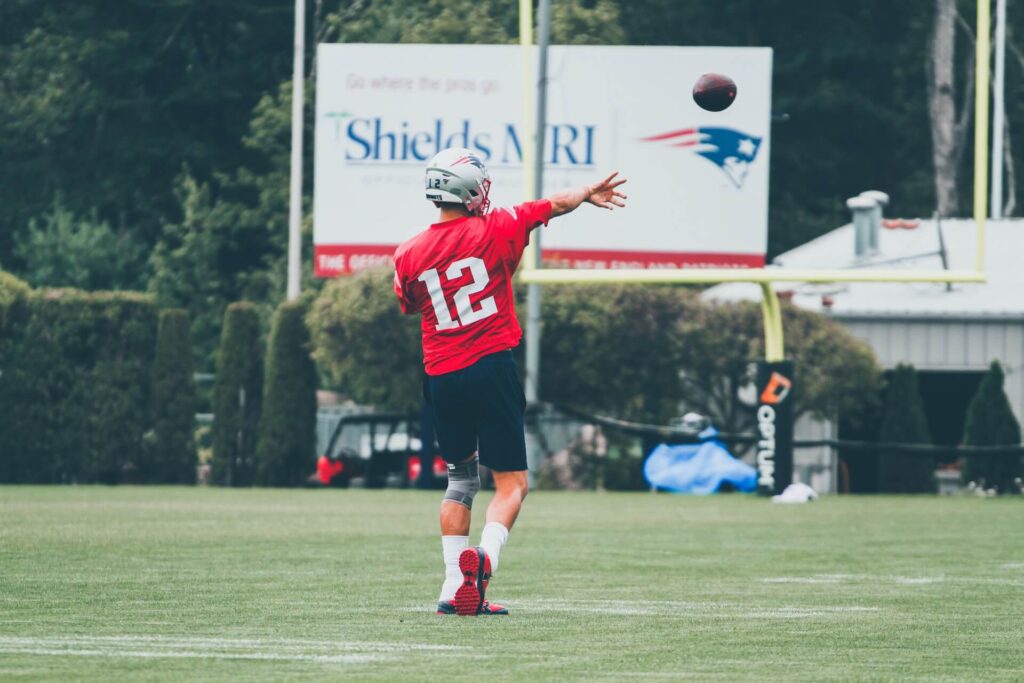How Does the NFL Wild Card Work?
Jan 08, 2024

As an Amazon Associate, Modded gets commissions for purchases made through links in this post.
The NFL Playoffs are a glorious time of year. This time of the season is when the pros play real football, with coaches playing chess and the players acting as knights and kings on the field. The playoff format has slightly changed over the years, with the number of participating teams increasing since 1967 — the start of the Super Bowl Era in the NFL. First up is the wild card round, so how does the NFL wild card work? Here’s a guide on the first round of the playoffs.
How Does the NFL Wild Card Work?
First, let’s talk about the playoff format as a whole. The NFL has two conferences, the AFC and the NFC. Each conference has four division winners (the North, South, East and West divisions). All eight division winners make the playoffs, no matter their record. Then, each conference makes room for three wild-card teams. These squads don’t have a good enough record to win their division but still make the playoffs based on merit.
The Playoff Seeding
The NFL puts the division winners and wild-card teams in order based on their records. Let’s look at the 2022-2023 NFL playoffs as an example, with each team’s regular-season record in parentheses. The AFC division winners are Nos. 1-4, and the wild card teams are 5-7.
- Kansas City Chiefs (14-3) — AFC West Winner
- Buffalo Bills (13-3) — AFC East winner
- Cincinnati Bengals (12-4) — AFC North Winner
- Jacksonville Jaguars (9-8) — AFC South Winner
- Los Angeles Chargers (10-7) — AFC Wild Card No. 1
- Baltimore Ravens (10-7) — AFC Wild Card No. 2
- Miami Dolphins (9-8) — AFC Wild Card No. 3
Here’s how the NFC stacked up in 2022-2023:
- Philadelphia Eagles (14-3) — NFC East Winner
- San Francisco 49ers (13-4) — NFC West Winner
- Minnesota Vikings (13-4) — NFC North Winner
- Tampa Bay Buccaneers (8-9) — NFC South Winner
- Dallas Cowboys (12-5) — NFC Wild Card No. 1
- New York Giants (9-7-1) — NFC Wild Card No. 2
- Seattle Seahawks (9-8) — NFC Wild Card No. 3

The First Matchups
In the first round, you’ll see 12 teams face off in six games to decide who will make the second round of the playoffs. Only two squads — the top seed in each conference — earn a bye week. They sit at home while the other teams grind on the field. The NFL implemented this rule change for the 2020 season to expand the playoffs to 14 teams. How does the NFL wild card work in a team’s favor? Last season, the Chiefs and Eagles got to rest.
Let’s visualize the wild card round by using the 2023 Playoffs as an example again. Here are the matchups from the first round.
AFC
- No. 2 Buffalo Bills vs. No. 7 Miami Dolphins
- No. 3 Cincinnati Bengals vs. No. 6 Baltimore Ravens
- No. 4 Jacksonville Jaguars vs. No. 5 Los Angeles Chargers
NFC
- No. 2 San Francisco 49ers vs. No. 7 Seattle Seahawks
- No. 3 Minnesota Vikings vs. No. 6 New York Giants
- No. 4 Tampa Bay Buccaneers vs No. 5 Dallas Cowboys
While the No. 2 team no longer gets a bye, they have an advantage by playing the weakest wild card team. In 2023, the No. 2 Bills and No. 2 49ers beat their opponents to advance to the second round.
The No. 4 seed has a slight disadvantage because they must take on the best wild-card team. In 2023, the No. 4 Jaguars relied on a furious rally after going down 27 points to beat the No. 5 Chargers. The No. 4 Buccaneers played at home against the No. 5 Cowboys despite having a worse record. The Cowboys easily beat the Bucs, proving their better record had meaning to it despite not being a division winner.
Why Do Wild Card Teams Struggle?
How does the NFL wild card work against the non-division winners? Many factors go against you. Some teams win a game or two, but only seven non-division winners have ever won a Super Bowl. Here are five reasons why these teams typically struggle.
Constant Road Travel

In the wild-card round, only the division winners get home-field advantage. The wild-card teams (seeds 5-7) must play on the road every game. The NFL playoffs have three rounds before the Super Bowl, meaning three weeks of flights, hotels and practice in unfamiliar areas. Some teams travel over 30,000 miles during the regular season, so the playoffs add even more fatigue.
Rest Disadvantage
Imagine you’re on the No. 6 seed New York Giants in 2023. Your team pulled off the upset against the Minnesota Vikings in U.S. Bank Stadium due to the play of Daniel Jones and Saquon Barkley. What’s your reward? You can play the No. 1 seed Philadelphia Eagles in Lincoln Financial Field. The Eagles have an advantage because they play at home and have had a week to rest. Your team must continue playing despite the disadvantage.
Unfriendly Weather

When you play at home, you’re accustomed to the weather despite the season. January football typically brings snow, ice and other conditions, making football more difficult. The unfriendly weather causes trouble for many teams because it’s hard to prepare for the frigid temperatures. The New England Patriots, the Green Bay Packers and the Pittsburgh Steelers embrace the cold and wear it as a badge of honor. In fact, these three teams have the highest winning percentage in cold weather, only behind the San Francisco 49ers.
Hostile Environments
Playing on the road isn’t easy, regardless of your sport. Tough crowds will do and say anything to get under your skin — just ask the players what they’ve heard from fans with front-row seats over the years. These hostile environments are challenging for communicating on offense and defense, often leading to penalties and turnovers. The teams that can overcome the tough crowds are genuinely among the elite.
Talent Disparity

The highest-seeded teams typically have a super record for a reason — terrific talent. Take a look at last year’s top four seeds. These squads have star talents like Patrick Mahomes, Joe Burrow, Christian McCaffrey, Jamarr Chase and other unguardable players. It is a tall task to ask your team to stop those players on their home turf. Can you imagine taking on Tom Brady in Foxborough during the playoffs? Good luck with that.
What Are the Most Successful NFL Wild Card Teams?
How does the NFL wild card work in league history? It gives us some of the most fun stories from the playoffs. Here are five wild-card teams that did the unthinkable and won a Super Bowl.
2020-2021 Buccaneers
Let’s start with a recent example featuring the GOAT himself, Tom Brady. The Tampa Bay Buccaneers signed Brady after he spent 20 seasons with the New England Patriots. Unfortunately, they weren’t good for most of the season. However, they finished the season strong and made the playoffs as the No. 5 seed. Tampa Bay defeated Washington, New Orleans and Green Bay before dominating Kansas City in the Super Bowl.
2000-2001 Ravens
The 2001 Ravens are famous for their dominant defense. Their squad featured Ray Lewis, Rod Woodson, Sam Adams and other stars who routinely hurt their opponents. You’d definitely need first aid after playing 60 minutes against this team. Despite their 12-4 record, the Ravens fell behind the Titans in the playoff seeding. Do you think the team cared? They won every game, including the Super Bowl, between 13 and 27 points.
1997-1998 Broncos
Let’s stick with Shannon Sharpe’s teams and discuss the 1998 Broncos. The Broncos finished a game behind the Chiefs for the AFC West crown, but being a wild-card team didn’t affect them. Denver took care of business against No. 5 Jacksonville, No.1 Kansas City and No. 2 Pittsburgh in the AFC Playoffs before beating No. 2 Green Bay, the defending Super Bowl champion, for that year’s Lombardi Trophy.
2007-2008 Giants
Will Eli Manning make the Pro Football Hall of Fame? Experts will debate this topic until it’s time to cast a ballot. However, you can’t deny Manning and the Giants had a storybook season in 2008. The Giants entered the playoffs as the fifth seed and won three straight road games against the Buccaneers, Cowboys and Packers. Then, the Giants upset the Patriots’ undefeated season by winning Super Bowl XLII. Do you remember David Tyree’s miracle catch?
2010-2011 Packers
Aaron Rodgers is a lock for the Hall of Fame, and he has one Super Bowl to his credit. This ring came from a historic playoff run in which the Packers became only the second No. 6 seed to win the Super Bowl. The Packers won in Philadelphia, Atlanta and Chicago before earning Super Bowl XLV in a nail-biter.
How Does the NFL Wild Card Work Nowadays?
The NFL Playoffs have slowly expanded over the years. You used to see only the division winners compete, but now there are three wild-card teams with a chance to win it all. Will we ever see a No. 7 seed win the Super Bowl? Only time will tell. If you’re wondering how the NFL wild card works, use this guide as a refresher.






